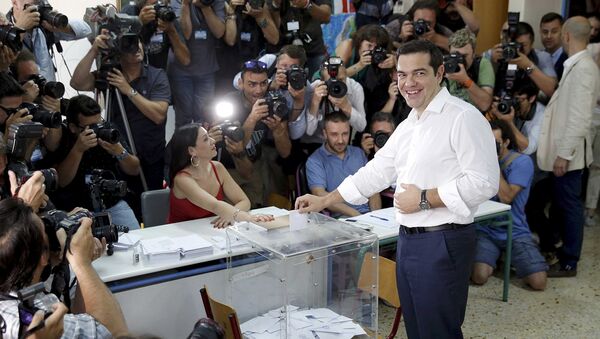On Sunday, more than 61 percent of Greek voters rejected the lenders-proposed bailout plan, which stipulates spending cuts and tax increases in exchange for further financial assistance to the country.
"One thing is clear. The place of Greece is and remains in euro," Dombrovskis said at the European Commission’s press briefing.
Gap Between Greece, Eurozone Widened by Greek 'No' Vote at Referendum
The differences between Greece and other Eurozone member states increased after the Greek people voted to not accept its creditors's demands in a referendum, Dombrovskis said.
"The 'no' result unfortunately widens the gap between Greece and other Eurozone countries, there is no easy way out of this crisis. Too much time and too many opportunities have been lost. The Commission is ready to continue its work with Greece. But to be clear the Commission cannot negotiate a new program without a mandate from the Eurogroup," Dombrovskis said.
Eurozone Not Under Threat After Greece Rejecting Bailout Deal
"The stability of the euro area is not in question. On June 27, the Eurogroup reiterated that the euro area authorities stand ready to do whatever is necessary to ensure financial stability of the euro area," Dombrovskis said.
"We have everything we need to manage the situation. We have a banking union to ensure the stability of the financial sector. We have the European Stability Mechanism with the firepower of 500 billion euros to help the most vulnerable economies," he continued.
Greece to Struggle to Regain Stability Without Agreeing With Eurozone
"We know that the financial situation in Greece is very complicated and the way do address this situation is to reach an agreement with the rest of the Eurogroup countries as as soon as possible. I think it’s going to be very complicated to restore financial stability in Greece without reaching an agreement, without having a credible strategy how to come out of the crisis, how to restore financial stability and economic growth," Dombrovskis said.



